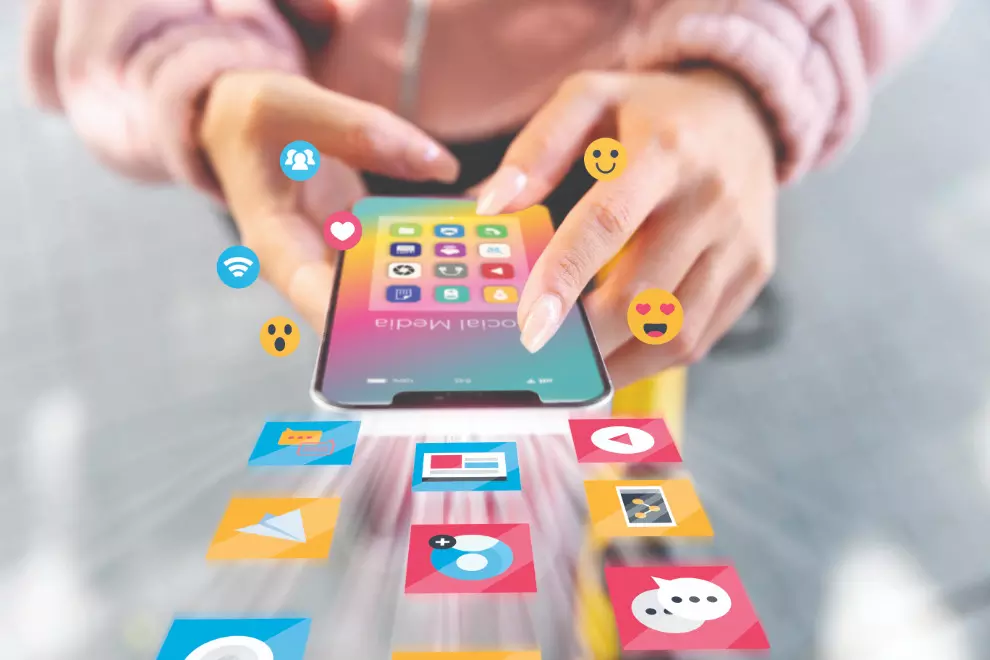
New Delhi, June 25 -- Remember how just a couple of years ago, social media was the place to check out your office folks or keep tabs on our friends, see their holiday photos, or post pictures from your own wedding? It was all about sharing life updates with friends and family. Then came the rise of influencers. Things still felt fun, but you could tell that brands were creeping in. Slowly, every business felt the pressure to be online. Big companies were all trying to go viral. As marketing money poured in, the original vibe of social media, connecting with people, started fading. The platforms now decide what you should see, with endless posts and reels meant to hijack your attention. And even though we're online more than ever (the average person spends nearly 2.5 hours daily on social media), we're not really talking to each other anymore. It's more about influencers, trends, and entertainment than actual conversations.
Let's be honest. Can you really stop at just one reel? Of course not. The algorithm knows exactly what will keep you hooked, and it doesn't let you go. That's why brands today are more focused on churning out content than building a genuine community. Even Facebook founder Mark Zuckerberg admitted during Meta's antitrust trial that things have changed. Data backs it up too. On Facebook, time spent talking to friends has dropped from 22% to 17%, and on Instagram, it's gone from 11% to just 7% in only two years.
Branding all the way
Now as social media shifts from personal interactions to entertainment and influencer-driven content, brands are adapting their digital marketing strategies to remain relevant and effective. The most successful brands today are those that collaborate with micro-influencers who bring credibility and deep audience engagement. "Social media is no longer about connecting with friends or sharing life updates. It has evolved into a global entertainment stage where short-form videos, influencer narratives, and algorithmically surfaced content command the most attention. In this context, brands can no longer rely on traditional advertising models or polished campaigns with generic messaging. To remain relevant, they must reimagine themselves as creators of culture, not just products," said Merin Mariya, Director- Office of Press & Media at Alliance University.
According to Harshi Gilara, Chief Marketing Officer, Petonic AI, the audiences today aren't interested in being sold to, they're looking for content that informs, entertains, or connects emotionally. This calls for an entertainment-first mindset, where every piece of content is seen as a story to be told rather than a product to be pushed. "Also, push marketing is losing relevance. Brands that succeed are those that pull audiences in through trend-driven, value-rich content that feels timely and culturally relevant. The approach must be agile, insight-led, and platform-specific, what works on Instagram won't automatically succeed on YouTube or X. It's no longer enough to have one-size-fits-all campaigns," he said.
Gen AI is transforming customer engagement
Gen AI, powered by advanced machine learning models, creates highly customised and relevant content, products, and solutions for individual customers. Vivek K Singh Chairman & CEO, Careerera, believes Gen AI is transforming how we create content. Generative AI is a major breakthrough for speed and efficiency. But he cautions that there's a real danger in letting automation overtake originality. "Brand voice and human insight can't be replicated by algorithms. AI can generate content, but humans generate meaning. Audiences can sense what's real. If everything starts to look and sound the same, it becomes noise, not value," he said.
Mariya is also of the opinion that over-reliance on automation can lead to homogeneity in voice, a dilution of emotional nuance, and disconnect from the brand's authentic tone. "The solution is a human-in-the-loop model where AI handles the scale and testing, but creative direction, emotional calibration, and ethical checks remain firmly in human hands. The most resonant stories still come from lived experience, intuition, and empathy-qualities AI cannot replicate," she said.
Heading towards hyper-personalised marketing landscape
In a digital world dominated by AI-curated feeds and predictive algorithms, we are heading toward a hyper-personalised marketing era, where AI and predictive algorithms empower brands to deliver content that feels tailor-made for every individual. According to Gilara, with access to behavioural data and real-time intent signals, marketers can craft messages that match users' preferences, moods, and moments, at scale. He cites the example of Spotify, which suggests the perfect playlist or Netflix that recommends your next binge-worthy show. When done well, this approach makes users feel understood and engaged, while boosting efficiency and ROI for brands.
"But there's a fine line between personalisation and predictability," he added. "When algorithms optimize only for past behaviour or popular content, they risk narrowing the creative field, leading to repetitive messaging and a loss of originality. Over time, this can create an echo chamber where brands blend together and true discovery fades," he said.
Singh also believes that hyper-personalisation holds immense potential. "But it's only truly effective when it delivers fresh, meaningful experiences rather than repackaged content. The successful brands will be those who employ AI to stand out, not blend in, but to unapologetically show off their individuality," he said.
Published by HT Digital Content Services with permission from Millennium Post.
